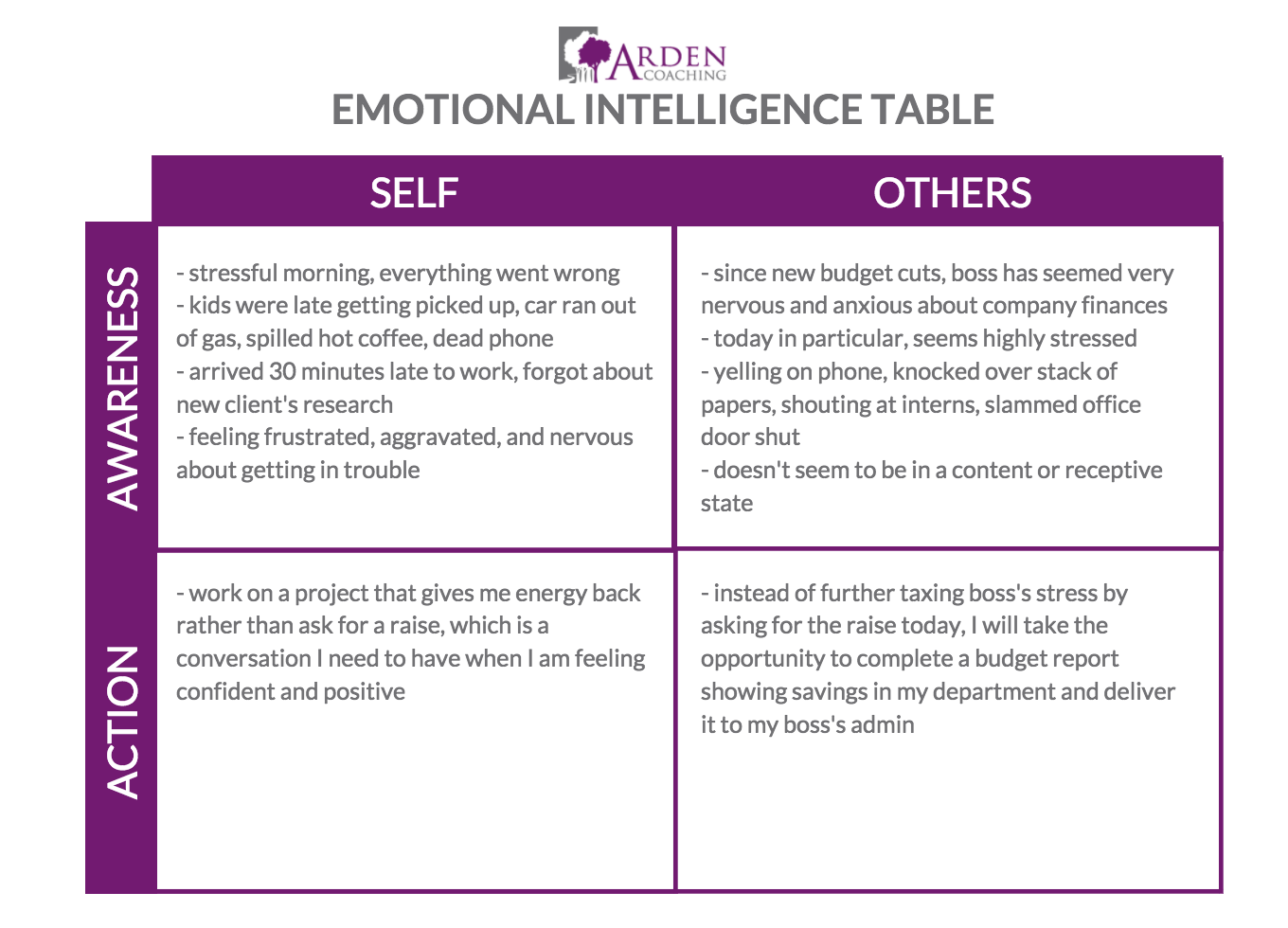Instinctively, we as humans use emotional intelligence to make decisions, without realizing that this is what we are doing.
Though interpretations of emotional intelligence differ, the principle pioneered by Daniel Goleman, PhD is about being aware of and acting based on emotions. In the bare-bones dictionary definition, emotional intelligence is described as “the capacity to be aware of, control, and express one’s emotions, and to handle interpersonal relationships judiciously and empathetically.”
The truth is that we do this every day. Few of us, however, take the time to evaluate the way we make instinctive decisions, and how mastering emotional intelligence is advantageous in an office environment. Understanding this concept at a foundational level can help you to harness your observations, and encourage a deeper awareness of yourself and those around you.
When Is This Information Most Useful?
Being able to distinguish emotions is valuable in the workplace, so your first objective is refining this ability. Many people have difficulty discerning whether they themselves are feeling disgusted, or disappointed, for example. Knowing as much as you can about your own state will give you a competitive edge. As we have discussed in previous blogs, what others believe about you is the reality, so it’s important to stay aware of perception. Our 360 Leadership Assessment will bring to light whether your perception of yourself and others’ perception of you are aligned, and the areas in which the perceptions may differ. Once you are confident in your self-assessment, you can use this knowledge to decide to go for the new management role on your team, or perhaps adjust the way you approach giving feedback.
The other part of it is being able to read the emotions of others. Doing so will enable you to take actions based on these considerations. In situations such as a board meeting, you can gauge the emotions of your peers and superiors in the room to determine if you should pitch your new project. When you teach a class, or give a presentation, you can use emotional intelligence to observe interest and can pivot if necessary.
How Can We Improve Our Emotional Intelligence?

An emotional intelligence table is a worksheet that helps you think critically and introspectively about your observations. You can try out our blank template here. Let’s follow the emotional intelligence table of Elaina, an employee at a small law firm who is debating whether or not it is a good time to ask for a raise. She uses the Awareness column to accumulate notes about herself and others, and then carefully considers these points before filling in her Action column.
Self-Awareness
Everything went wrong for Elaina on her way to work this morning. Her kids were late getting picked up by the bus, her car ran out of gas, she spilled hot coffee in her lap, and her phone was dead, so she wasn’t able to call her office. After arriving 30 minutes late, she realized that she forgot to bring in the research she completed for her newest client. She is feeling aggravated and frustrated.
Self-Action
When Elaina realizes she’s had a rough morning, she decides to work on a project that tends to give her energy back, rather than asking for the raise, which she finds stressful and knows she needs to put her best foot forward for. She should wait until she has the confidence and positive attitude she needs to make that conversation a success.
Others-Awareness
Since new plans for budget cuts have been revealed, Elaina’s boss has seemed very nervous and anxious about company finances. Today in particular, she seems highly stressed. She could be heard yelling on her phone before she knocked over a stack of papers, shouted orders to the interns, and slammed the door to her office shut. Elaina picks up on these indications that her boss is not in a receptive or content mood.
Others-Action
When Elaina notices her boss behaving in a way that Elaina recognizes as stressed, Elaina decides not to tax that stress by asking for a raise that she knows her boss may relate to as a financial strain. Instead, she takes the opportunity to complete a report that shows how her department was under budget this quarter, and provides it to her boss’s admin during lunch so that her boss will find it when she returns.
Take the time to fill out your own emotional intelligence table after your encounters with your surroundings or management to practice staying conscious of these instinctive thoughts and decisions. The more in tune with yourself and your environment that you can be, the better the action you can take, and therefore achieve more desirable results.

